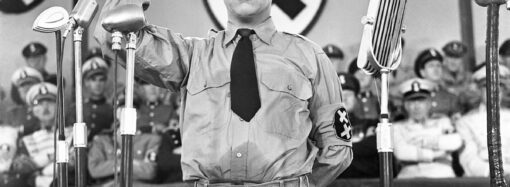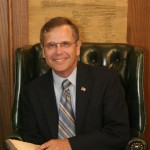This article was first published on CNS News.
A newly published speech by one of our Framers offers important clues to the constitutional role of the states, of the right to keep and bear arms, and of the amendment process.
Charles Carroll of Carrollton represented Maryland at the Constitutional Convention. After the convention was over, he advocated the Constitution’s ratification.
Recently-isssued Maryland volumes of the Documentary History of the Ratification of the Constitution of the United States include a number of important documents, productions by Carroll among them. As I explained in a recent post:
One of the two new Maryland volumes contains a draft speech by Charles Carroll of Carrollton to be delivered in 1788. Although the speech was not delivered, it is evidence of the educated understanding of the time—especially because Carroll had served as a delegate to the Constitutional Convention, and therefore helped write the document. The Carroll speech specifically affirmed that wills and property conveyances were within the jurisdiction only of state courts, not federal courts (vol. 12, p. 844).
The new Maryland volumes also reproduce another undelivered speech. This one may have had public impact, because it was published well before all the states had ratified. Although it was anonymous, it was almost certainly the finished version of Carroll’s address.
As I also explained, the oration reinforced other founding-era representations about the limits of federal power:
This speech emphasized that Congress would be powerless to regulate inheritances, alter the laws of wills, or establish a national church. (Vol. 12, p. 881). It went on to say that each state will have exclusive control over “the whole regulations of property, the regulations of the penal law, the promotion of useful arts [i.e., technology], the internal government of its own people.”
I did not mention in that post, however, that Carroll further elucidated the roles of different parts of the system in protecting freedom:
The three distinct powers of the federal Govt. Are skillfully combined so as to balance each other . . . Sir, this is not all; the federal Govt. Is not only well balanced by the judicious distribution of the powers, which compose it, but the several State-governments will always keep it within its own & proper sphere of action: thus while it restrains the State-Governments with their orbits, it is by them retained within its own. . . The executive & judicial of the State goverts. Will keep a fixed & stedfast eye on those departments of the federal Govt., whose duty it will be not to overlook any encroachments on their respective Jurisdictions.
In addition, Carroll touched on the importance of the right to keep and bear arms:
The vast extent of our territory, the exertions fo thirteen governments, the diffusion of knowledge spirit of liberty amongst the citizens . . . all of whom know the use of fire-arms, would soon prove the folly and madness of the undertaking [of a hostile federal army]. In such a case, the president and congress might, in vain, call upon the militia. In such a case the force of the militia would be exerted against the base traitors to their country.
Carroll further emphasized the utility of the method of proposing amendments by a convention of states, and the independence of the convention from federal control:
When we shall have made a fair trial [of the Constitution], and found the whole, or any part of it, pernicious; the very same authority, which made, can, at any time undo, or improve it. If ever, after the adoption, a convention shall be proposed to amend it, in the way, pointed out by itself, I have the most perfect confidence, that the appointment will take place, and that neither the president, nor the congress, nor any other department will dare to oppose it . . . The very attempt to restrain, would operate most powerfully to promote it.
Finally, the speech contained a passage (too long to be reproduced here) that focused on the division between the federal and state judiciaries and the limited nature of the federal judicial power.








